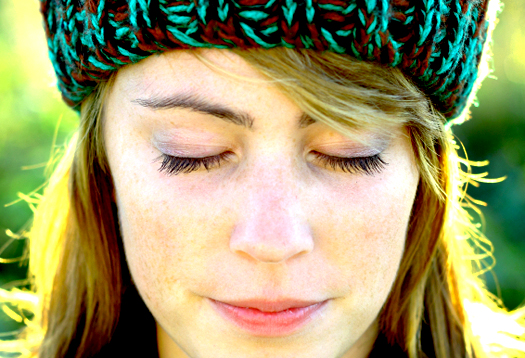99 tips for a better world: enjoy a hot shower (4 of 99)
I wanted you to know that before we embark on a discussion about my complicated relationship with gratitude. Allow me to lie down on the therapist’s couch and tell you about it.
As a kid, the nuns at my school would tell us, ‘Eat all of your lunch. Remember the starving children in Africa’. They said that to you too? Classic teacher move.
I would respond, ‘If the kids in Africa are so starving, why don’t I send them my leftovers?’ You said that too? Classic smartarse kid move.
Ever since it dawned on me that my life was one of privilege by global standards, I had a lot of guilt about it. I found it hard to enjoy many of the pleasures available to me knowing that it was largely the luck of the draw. Born in Australia = have a nice life. What about the people who didn’t have a nice life? Bully for them?
It was hard to grasp what my lunch had to do with children in Africa though. What I realise now that I didn’t realise then is that the nuns were setting up the building blocks of gratitude.
Gratitude is very popular these days. It sits right up there with peace, love and understanding as a term roundly celebrated by people who like inspirational fridge magnets. I agree that being thankful for what I have and not taking it for granted is important. So why then do I feel a bit icky about expressing gratitude?
If I think about all that I am grateful for, my next thought is about all that other people who don’t have those things. And then I ask myself, ‘Sarah, how can you sit here and bathe in all this wealth and prosperity when others have so little?
Buzz kill.
When it came time to make decisions about my career I followed a path into international development. I thought it would allow me the greatest chance of addressing inequality in the world. Perhaps I was also hoping to alleviate some of my guilt.
One of my first jobs was in Aceh, Indonesia, which had been devastated by the Indian Ocean tsunami.
I arrived in Aceh three years after the tsunami hit, and while the basic recovery mission was over, there was still a huge international presence working to re-establish infrastructure, services and governance.
Life was different there, and I took most of it in my stride. I had to conform to clothing restrictions, couldn’t walk far alone, the food was ordinary, and frequent earthquakes gave me the jitters. These things, at their worst, prompted a whinging session with a friend over some mie goreng.
There was one thing however that could have brought me to tears every single day.
I didn’t have a shower. Instead I had a bak mandi.
The bak mandi is, for all intents and purposes, a well in the corner of your bathroom. It sits full of water most of the time, ready for you scoop out water and splash it all over yourself. It is very effective.
But the water was cold, and the mornings in Aceh were cold. I had to slowly and methodically pour cold water all over myself again and again until I was clean. Do I need to remind you that I hate cold water?
Do I need to remind you that Aceh experienced unimaginable destruction of life, property and livelihood as a massive earthquake brought building to the ground and then a giant wave tore through what was left of the crumbling province? Over 170,000 people were killed and 500,000 made homeless.
And I don’t like cold water.
So my guilt skyrocketed…right?
Surprisingly, it did the opposite. My longing for a warm shower taught me about my own wants and needs. I realised that I could live without most of the comforts I had grown up with, but there were some things I did want and no amount of acknowledging suffering in the world would take my longing away.
I came back to Australia so deeply grateful for all that my life in Australia afforded me, even the things that are far from necessary: raw vegetables, fast internet, soft sheets, footpaths, and hot showers in every home.
Finally, I understood what the nuns were trying to teach me. Only when we feel deep gratitude for the privilege and comfort in our lives can we truly appreciate what it would be like not to have it.
Imagine the impact if everyone on earth felt gratitude for all that they had, whether it is money or love or good health. We might also truly have empathy for those without money or love or good health.
Wouldn’t that make a better world?
Do you love independent media? Can’t get enough of intelligent, thoughtful feminist content? Want to see writers actually get PAID for their work? Please donate to Lip through Pozible today, and help keep the mag alive!


